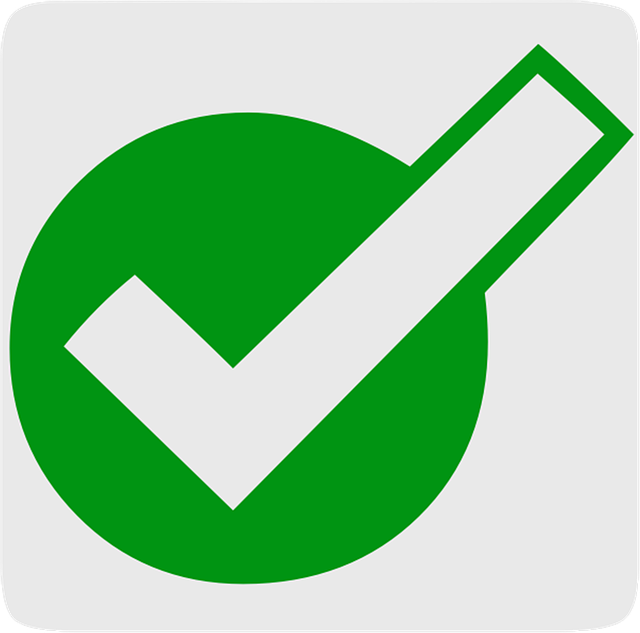In the competitive real estate market, thorough real estate license checks are paramount for both industry professionals and clients. These checks ensure licensed, credible agents with competent skills navigate complex property transactions. Online resources streamline the process, making it faster and more efficient than ever using state regulatory databases. Manual verification involves cross-referencing documentation and data to confirm qualifications, maintain integrity, and build client trust. Challenges include keeping up with changes and ensuring comprehensive checks, which can be overcome through informed practices and automated systems for license tracking.
In the dynamic realm of real estate, ensuring agent credibility is paramount for client trust and legal compliance. Thorough verification of licenses and credentials is a vital step in navigating this competitive landscape. This article guides you through the process, from understanding the importance of license checks to utilizing online resources and manual verification techniques. We also address common challenges and best practices for maintaining an up-to-date agent database, empowering professionals to excel in today’s market while mitigating risks associated with real estate transactions.
- Understanding the Importance of License Checks in Real Estate
- Identifying Required Credentials for Real Estate Agents
- Utilizing Online Resources for Efficient License Verification
- Manual Verification Process: Steps to Ensure Accuracy
- Common Challenges and How to Overcome Them During Checks
- Best Practices for Maintaining an Updated Agent Database
Understanding the Importance of License Checks in Real Estate

In the competitive and highly regulated realm of real estate, conducting thorough real estate license checks is paramount for both industry professionals and clients alike. These checks serve as a critical quality control measure, ensuring that buyers, sellers, and renters are dealing with licensed and credible agents. A licensed real estate agent possesses the necessary expertise and qualifications to navigate the intricate processes involved in property transactions, from understanding market trends to handling legal documentation.
By verifying an agent’s license, clients can have confidence in their ability to competently represent their interests. This is particularly crucial during what can be a complex and emotional experience, such as buying or selling a home. Real estate license checks also play a vital role in maintaining the integrity of the industry, deterring unethical practices, and safeguarding consumers from potential fraud. It’s a fundamental step that fosters trust, transparency, and accountability among real estate professionals.
Identifying Required Credentials for Real Estate Agents

In the dynamic realm of real estate, ensuring the integrity and credibility of agents is paramount for clients’ protection and industry transparency. When conducting thorough background checks, identifying the necessary credentials involves verifying several key components specific to real estate practices. The cornerstone of this process is the real estate license, a legally mandated permit that confirms an agent’s training, knowledge, and competence in facilitating property transactions.
Beyond the license, crucial credentials include professional certifications such as membership in national or local real estate boards, which signify adherence to ethical standards and best practices. Additionally, checking for any history of disciplinary actions, complaints, or legal issues is essential. These measures collectively contribute to a robust real estate license check, fostering public trust and ensuring clients receive professional, trustworthy service during their property journeys.
Utilizing Online Resources for Efficient License Verification

In today’s digital era, verifying agents’ licenses and credentials has become more accessible than ever. Online resources play a pivotal role in streamlining this process, enabling professionals to conduct thorough real estate license checks promptly. Many state regulatory bodies offer dedicated platforms where you can input an agent’s information to instantly verify their license status, active dates, and any disciplinary actions taken against them. These databases are updated regularly, ensuring the most accurate results.
By utilizing these online tools, real estate professionals can save significant time and effort compared to traditional methods of verification. It’s a straightforward process that allows for efficient navigation through the complex web of license information, ultimately fostering a more robust and trustworthy industry.
Manual Verification Process: Steps to Ensure Accuracy

The manual verification process for real estate license checks involves a meticulous step-by-step approach to ensure accuracy and maintain the integrity of the industry. It begins with obtaining the necessary documentation from the agent, which typically includes their license certificate, any additional credentials, and identification proof. This initial review is crucial to confirm that all required documents are present and valid.
Next, cross-referencing data across multiple reliable sources is essential. This includes verifying the agent’s license number against official state or national databases, checking for any disciplinary actions or suspensions, and confirming their enrollment in relevant continuing education courses. By following these steps, industry professionals can have confidence in the accuracy of their findings, ensuring that only qualified and trustworthy agents are representing clients in the real estate market.
Common Challenges and How to Overcome Them During Checks

In the course of verifying agents’ licenses and credentials, several common challenges often arise. One significant hurdle is keeping up with constant changes in regulatory requirements, as laws and guidelines can vary by region and are subject to updates. Staying informed about these changes is crucial for accurate checks. Utilizing reliable online resources and subscribing to industry newsletters can help professionals keep abreast of the latest regulations.
Another challenge is ensuring comprehensive verification. Agents may hold multiple licenses or certifications, and it’s easy to overlook one during the initial screening process. To overcome this, implement thorough checklists that encompass all relevant credentials, including real estate license checks, professional memberships, and any specialized certifications. Cross-referencing data from multiple sources can also help catch discrepancies and ensure a complete picture of an agent’s qualifications.
Best Practices for Maintaining an Updated Agent Database

Maintaining a comprehensive and up-to-date agent database is paramount in the real estate industry, where trust and credibility are paramount. Regularly updating this database ensures that all agents’ licenses and credentials remain valid, allowing for efficient real estate license checks. One of the best practices is to establish automated systems for tracking renewal dates. This can be achieved through digital platforms or software designed to send reminders and notifications when licenses are set to expire. By doing so, you enable agents to renew their credentials promptly, preventing any disruptions in service.
Additionally, creating a structured process for verifying these updates is essential. Implement a systematic approach where new or renewed licenses are double-checked against official records. This verification can be done through secure online portals or by contacting relevant licensing authorities directly. Such measures not only ensure the accuracy of your database but also foster a culture of transparency and accountability among agents, strengthening client trust in your organization’s integrity.






